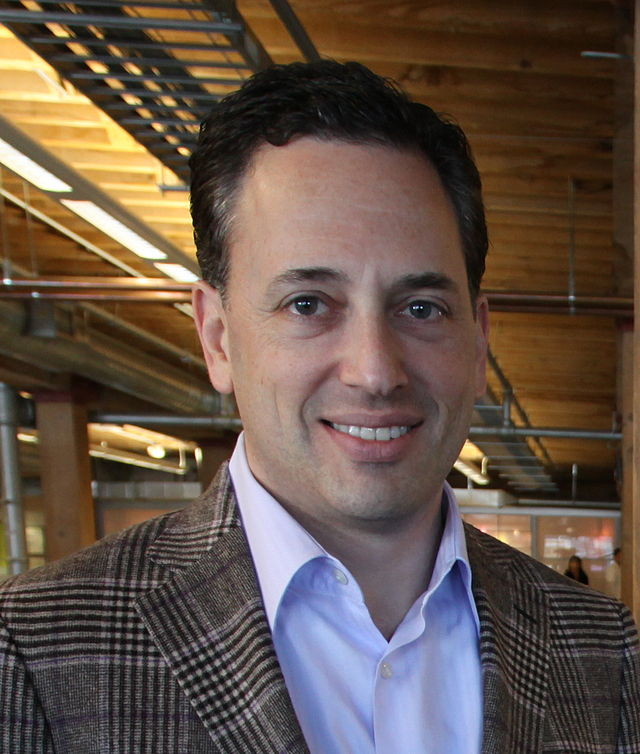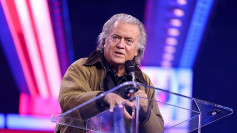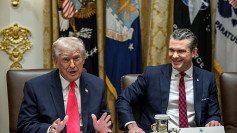President-elect Donald Trump on Thursday appointed David Sacks, a longtime Silicon Valley figure and close associate of tech entrepreneur Elon Musk, to a newly created role overseeing U.S. policy on artificial intelligence and cryptocurrencies. The announcement marks a dramatic pivot in the incoming administration's approach to emerging technologies, placing a major investor and early PayPal co-founder at the helm of what Trump is calling the "White House Artificial Intelligence and Crypto Czar."
Sacks, who helped build PayPal alongside Musk and investor Peter Thiel, is expected to wield substantial influence over some of the most consequential sectors of the 21st-century economy. "He will safeguard Free Speech online, and steer us away from Big Tech bias and censorship. He will work on a legal framework so the Crypto industry has the clarity it has been asking for, and can thrive in the U.S.," President-elect Trump said in a statement posted to Truth Social. Trump added that Sacks will also "guide policy for the Administration in Artificial Intelligence and Cryptocurrency, two areas critical to the future of American competitiveness."
Though the exact contours of the new position remain unclear, the announcement is part of a broader effort by Trump's incoming administration to formalize policy on rapidly advancing technologies. Sacks is set to lead the newly formed White House post, as well as serve as head of the Presidential Council of Advisors for Science and Technology. "David will focus on making America the clear global leader in both areas," Trump said, positioning the U.S. in direct competition with nations like China that have prioritized state-backed AI initiatives.
Sacks, who emerged as a controversial figure in Silicon Valley's influential venture capital circles, will likely bring a market-friendly, libertarian-leaning stance to the intersection of technology and government. Known to some as a co-host of the popular "All In" podcast, his public persona blends free-market enthusiasm with a willingness to challenge certain industry norms. His supporters hail him as the right person to cut through regulatory confusion. "I can't think of a better person," DigiBuild CEO Robert Salvador posted on social media.
Not everyone agrees. Reaction within the tech community was mixed and at times openly hostile. "I know he's an awful person from the things he's done," prominent Silicon Valley investor and writer Paul Graham posted on X, reflecting deep skepticism from some corners of the industry. Critics note Sacks' involvement in controversies surrounding previous investments and allegations about his treatment of founders.
Still, Sacks' connections run deep. He worked closely with Musk and Thiel at PayPal and later invested in their ventures, including SpaceX and Palantir. More recently, he hosted a major fundraiser for the Trump-Vance ticket in San Francisco and interviewed Trump on the "All In" podcast. During that conversation, Trump advocated for more liberal immigration policies for skilled noncitizens, saying, "[What] I want to do, and what I will do, is you graduate from a college, I think you should get, automatically as part of your diploma, a green card."
Trump's choice of Sacks signals a fresh chapter for technology policy in Washington, one that could be shaped by the worldview of Musk's tight-knit circle of Silicon Valley allies. Some industry observers believe giving a single figure sweeping influence over both AI and crypto could streamline an often balkanized regulatory landscape. Others warn that without a clear statutory mandate, the "AI & crypto czar" role may lack teeth, leaving the ultimate shape of policy uncertain.
Unanswered questions linger, particularly around conflicts of interest. Sacks launched an AI company called Glue earlier this year, and it is not yet clear whether that venture will remain active or how its existence might intersect with his new responsibilities. The current legal framework for crypto remains fragmented, and the AI domain is evolving rapidly, raising the stakes for any official charged with steering the country's direction.
Trump's attention to these technologies coincides with a rising influence of wealthy tech founders who supported his return to the White House. Amid intensifying competition with foreign powers, the incoming administration appears determined to place future-facing technologies at the forefront of its economic and national security agendas. Sacks' appointment underscores the administration's determination to shape a regulatory environment it views as conducive to innovation-though whether that environment will be embraced across the political spectrum remains to be seen.
As the new role does not yet formally exist, much will hinge on how the Trump team integrates Sacks into the executive branch. His ability to coordinate with various departments, from Commerce to Homeland Security, and with independent agencies, will define his effectiveness.





